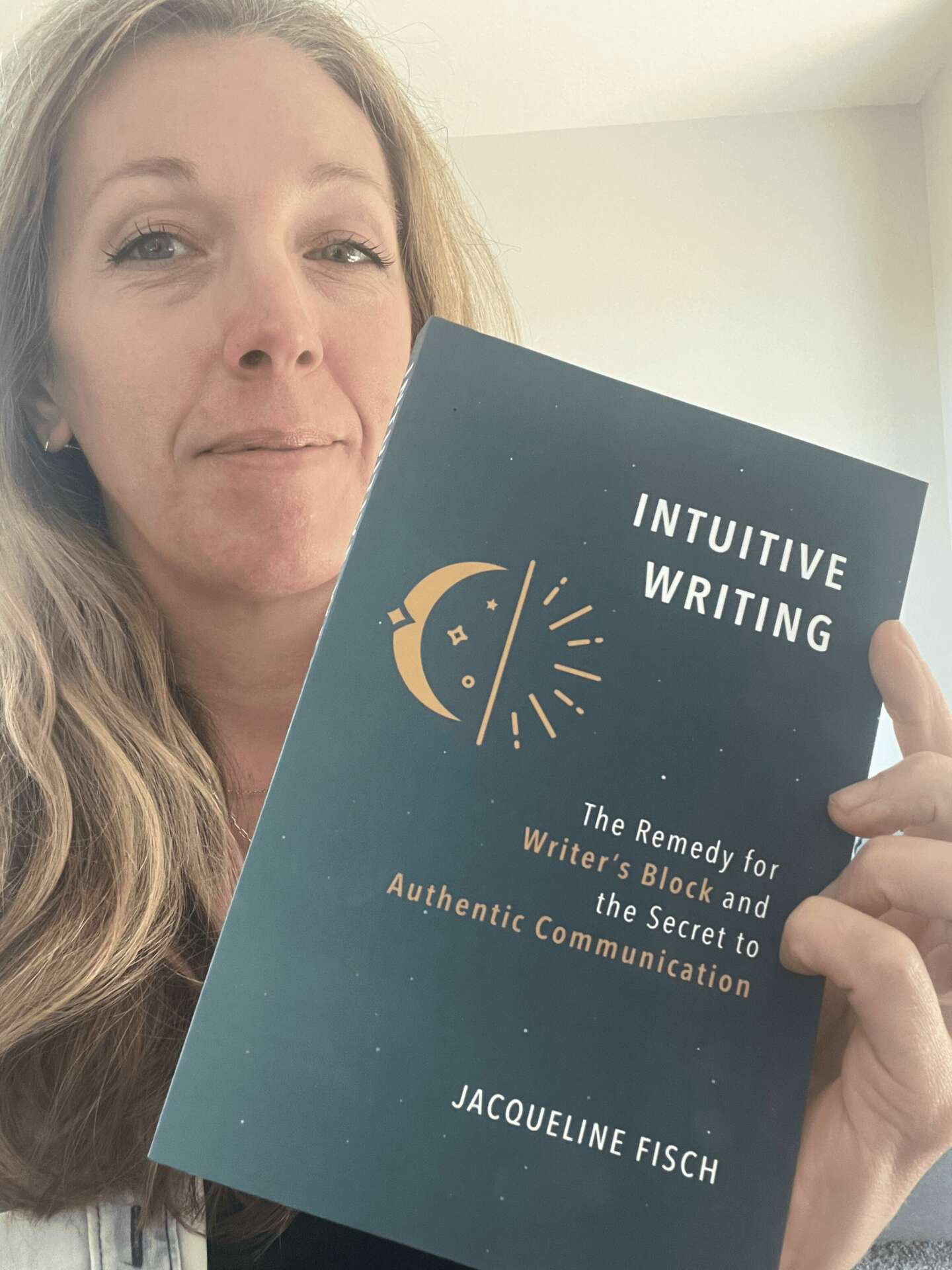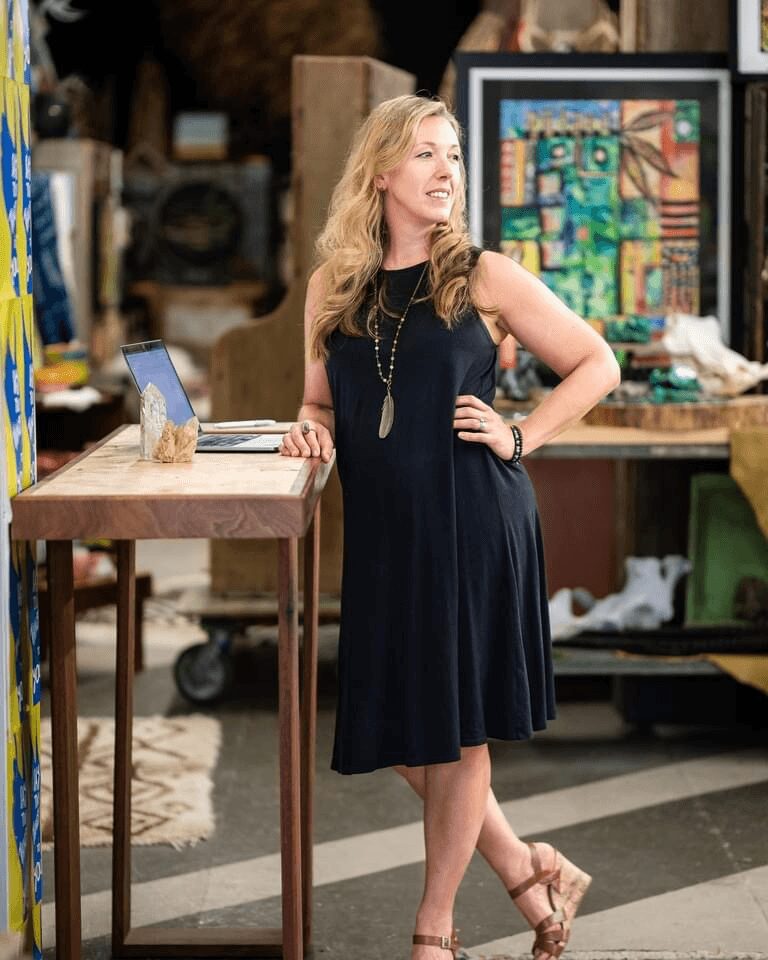We recently connected with Jacqueline Fisch and have shared our conversation below.
Jacqueline, thanks for taking the time to share your stories with us today What’s something you believe that most people in your industry (or in general) disagree with?
Using AI or Artificial Intelligence to write your content is helping us human writers.
A client asked me about ChatGPT a few years ago — “Have you played with it?”
Immediately, my response was, “No.”
Some people in the writing industry are excited because AI helps them create content faster. At the same time, some are disregarding it. It’s tempting to fall somewhere in the middle, but this needs to be a black-and-white issue in the content creation industry.
I wanted to give it a try. Spoiler alert — I tried it once and won’t be trying again. I couldn’t get ChatGPT to work on my laptop, so I gave my software engineer husband an input to plug in: “Write a 1,000-word blog post on ten tips to choose a creative idea to write about when you have too many.”
I never published the AI-inspired results on my blog because it would negatively affect my hard-earned SEO. Search engines like Google will demote results if they detect at least 30% of the content to be AI-generated.
Should you let a robot write for you?
While some writers freaked out, in the copywriting communities, many conversations explore whether AI will replace copywriters, content writers, bloggers, and books.
They wonder, “Will AI replace my copywriting job?”
In short, “No, but it depends.”
If you’re a great writer, then you’re fine. If you’ve been swiping others’ content, then yes, AI will quickly replace your work.
The downsides of AI for content writing.
The commands you use for generative AI matter. While some entrepreneurs take the time to learn effective prompting, they might not realize that the more you prompt the computer, the better it can understand.
AI-based creative writing is innately restricted. It can’t comprehend the nuances of human speech — especially with sentiments and the delicacies of storytelling. AI won’t accurately capture a creator’s intent or get the context correct. Maybe in the future, when the machine has more training and advanced prompting skills. But do you want robots to think and feel just like you?
A client hired me to fix her sales page copy for an online program she spent 10+ years developing. She requested my support because someone else she’d hired used AI to produce the copy. I’ve never considered a client’s writing and thought, “This is bad,” but the AI writing was soulless and dull. It needed a human touch.
Some people in the content writing industry take what AI generates and then write the opposite.
Some are using it only for ideas and social content and to get past writer’s block (which is a myth, but that’s a topic for another day).
The inconvenience of generative AI for content creation.
Possibly, one of the biggest troubles with AI is seeing it as a convenient tool to help people create more — furthering our obsession with output. This convenience lures content creators in. AI algorithms need training, and they’re voluntarily handing over their opinions and words to teach the robot in exchange for some work done for them. Sounds like lazy thinking.
Those looking to shortcut their content writing and clarify their ideas are likely the same ones excited to scan their palms at grocery stores.
Will AI replace copywriters someday? Probably. Not all of them. Writing coaches and authors? Nope.
AI has replaced jobs and decimated industries and will continue to do so. This is a great thing. We’re meant to change, grow, and evolve. As industries change, we learn new skills and pivot in our careers. That is if we serve our audiences and clients authentically.
4 Things AI is Missing:
1) a soul & connection to God
2) sovereignty
3) unique experience
4) emotions
Instead, I focus on my creative work. AI can’t replace my life experience. I’m focusing on having more adventures and ignoring shortcuts.
Seeing AI as “just a tool” is where we run into troubles. The convenience is there… like, sure, I’ll have LinkedIn AI write a thoughtful comment on my prospective client’s post.
AI will always give the same monotonous and predictable writing style. There will always be a need for authentic content. So why not keep your creative essence with you where it belongs? With you.
How I write is different from how you write — and why would I want to change that?


As always, we appreciate you sharing your insights and we’ve got a few more questions for you, but before we get to all of that can you take a minute to introduce yourself and give our readers some of your back background and context?
Hi, I’m Jacqueline Fisch. With 20 years of professional writing, coaching, & communications consulting experience in corporate, startup & team training, I teach coaches and consultants to write fast & write well. Or, I do it for them.
In 2017, I resigned from my management consulting career to go all-in on my ghostwriting and coaching business.
I didn’t think about starting a business until I returned to work after my first maternity leave in 2009. I sat in a shiny boardroom, looking around and thinking, “I don’t belong here.”
But if I didn’t belong there, where did I belong?
I knew I needed to be a powerful role model for my kids, which didn’t include commuting two hours daily and working through the bedtime routine.
I wanted to show them that moms are successful in business, enjoy nourishing meals, and have fun. We can have it all.
A few years after starting a plant-based food blog as a pleasure project, I learned that writing was what excited me most. When I wasn’t writing, I was thinking about writing.
I wanted to help more people with their words, so I asked some of my friends and past colleagues if they’d let me write thought leadership for them. All I asked in return was for some candid feedback and a testimonial.
A few people said yes right away. I created a LinkedIn article that opened doors, bios that make photographers confident to share their website links, and proposals that make prospective clients ask, “When can we start?”
To build on the momentum I was seeing, I updated my website, told a few more people, and kept writing. I received excellent feedback in return, and they’d refer me to their colleagues.
After 13 years, I closed the corporate career chapter of my life to start writing a new story. When I submitted my resignation, I jumped into a new, creative life full-time.
Today, my words have sold millions of dollars of consulting work, gotten businesses off the ground, and even got a glossy magazine to pick up the phone.
I’ve had the honor of collaborating with hundreds of coaches and consultants:
– Life coaches
– Business strategists
– Financial coaches
– Coaches for CEOs
– Executive Consultants
– HR Consultants
– Leadership Coaches
– Operational Consultants

What’s been the best source of new clients for you?
Having started and grown my business solely on authentic relationships, I appreciate the power of referrals as a source of new clients.
At least 95% of my ghostwriting and coaching clients come through a referral.
Most business owners waste hours trying to think their way to attracting new clients when, really, if they focused more energy on serving their current clients better and delivering excellent work, they’d grow their businesses with much less friction.
When I started my ghostwriting business as a side hustle, I sent a personalized email to people in my network. This helped me land my first few clients. Before long, they were passing my name along. Within months, I had enough clients lined up to quit my corporate job — which was the goal.
Once I delivered top-notch work and created an outstanding client experience, it was time to request a referral.
It might initially feel awkward if you’re not used to talking about your work. Track all your requests for a month or so to get practice asking for anything, including referrals.
When it comes to asking for referrals from people who loved working with you — they’re more than likely happy to help spread the word. Most often, clients will spread the word without you even asking. You asking your clients for referrals is simply a reminder.
Word-of-mouth referrals are a powerful way to grow your business. Because when you transform your client’s lives, they naturally want to share!
Make it a no-brainer for your clients to pass your name along.
The best time to ask for referrals
You can ask for a referral at any time during your engagement. If your client has experienced early wins working with you, ask them to share with someone they think could use your product or service.
Referrals can also come from your network. You may not have needed to work with them, but they’ve seen your high-quality work. For me, website designers, business coaches, SEO and branding experts have been fantastic sources of amazing clients. I haven’t worked for many of them, but I’ve worked with their clients, and they’ve seen the positive results first-hand.
Look around your network and see which industries are complementary to yours. These are your natural referral sources. Just like when I think of my realtor and all the local resources they’ve connected me with — home insurance, interior designers, lawn maintenance.
And just as I look to great complementary services for a referral source, I also look to be one. If I can serve my clients even more powerfully by sharing some other exceptional professionals they can work with — I’m always more than happy to do so.
Another optimal time to ask for referrals is at the end of your project. Even if you’re working with a client long-term, once you’ve completed an initial chunk, it’s an excellent opportunity to ask for referrals.
Here’s how I ask for (and get) great referrals.
I provide my clients with a template and encourage them to edit it to feel like their words. Of course, if I know my client well, I can tap into their voice and use words they’re likely to use.

Alright – let’s talk about marketing or sales – do you have any fun stories about a risk you’ve taken or something else exciting on the sales and marketing side?
I was on my second call with a potential website copywriting client. After a few emails going back and forth answering questions that popped up, she told me I was one of a few good copywriters that her website designer suggested for rewriting all the copy on her website.
This wasn’t the first time I’ve been in this position. Occasionally, the potential client ends up choosing someone else. No hard feelings.
I followed the same process I followed with every potential ghostwriting client. I show up as an expert, confident in my writing skills.
If I’m not a great fit, I’ll turn projects down and refer them to other writers.
Integrity comes first — always.
The second discussion I had with this potential client helped her decide.
She’s a writer too.
And when we got on our second call to chat about the contract, we chatted about how our days were going. I told her how awesome I was doing because I had just begun writing my third book.
I continued to share how I noticed that putting my writing projects first makes everything I write for clients better.
I got an email from her the next day.
“So — let’s work together!
Love, love, love our exchanges already before we even sign the dotted lines.
Let me know how to proceed.”
I didn’t ask her why she picked me to ghostwrite her website copy.
Perhaps she saw something in one of my writing samples. I think it was because I’m a ghostwriter who writes not only for others — but also for me.
Most ghostwriters and writing coaches only write in other people’s voices, never their own.
Most copywriters slip into persona after persona. The problem with this is when do they get to share their words?
Contact Info:
- Website: https://jacquelinefisch.com
- Instagram: https://www.instagram.com/theintuitivewritingschool/
- Facebook: https://www.facebook.com/theintuitivewritingschool
- Linkedin: https://www.linkedin.com/in/jacqueline-fisch-writer/
- Twitter: https://twitter.com/JacqFisch
- Other: https://theintuitivewritingschool.com/







